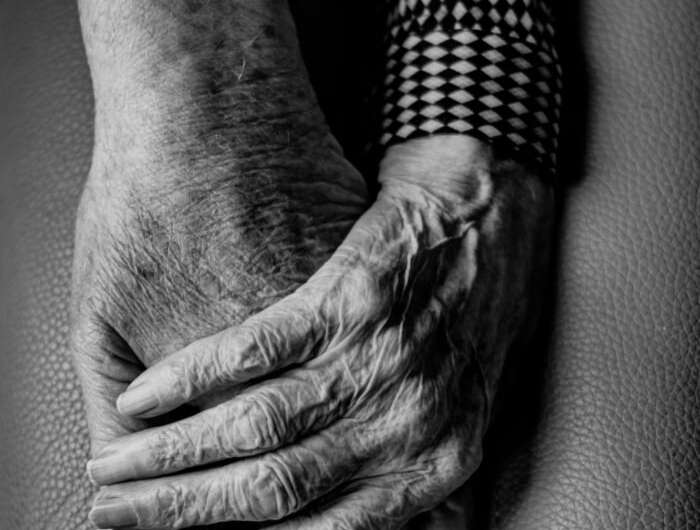Study explores strain on dementia patient care partners

The COVID-19 pandemic lockdown has further strained care partners of those living with dementia to the point where they are having trouble balancing care for their loved ones with their own self-care, resulting in physical and emotional exhaustion, health problems, and feelings of anxiety, depression and irritability.
To better understand the experiences of care partners in southwestern Ontario, BrainsCAN, in partnership with the Alzheimer Society London and Middlesex (ASLM) and the Alzheimer Society of Ontario, surveyed more than 450 care partners.
A report summarizing the survey's findings, "Translating the attitudes and experiences of care partners and persons with dementia into quantifiable measures," was recently released to the public.
The survey focused on three general stages of dementia care: an early stage where those living with the disease are capable of independent self-care; a mid-stage where mild to moderate assistance is needed for daily tasks; and a late stage where full care is required.
The most dramatic drop in quality of life for care partners was reported once the person living with dementia moved from being independent to requiring mild to moderate care.
"Surprisingly, it wasn't the change to full care that caused the drop in quality of life for care partners," said Lisa Saksida, Co-Scientific Director of BrainsCAN. "During this mid-stage, care partners might find themselves providing assistance with transportation and health care, emotional and physical support, and assistance around the home, resulting in less time for their own self-care."
Beyond themselves, that stress reaches into the workplace, as half of employed care partners said their care-giving duties at home negatively impacted their ability to be productive on the job—requiring them to miss 10 days of work per year.
When layering the current global health crisis on this existing strain, the problems magnify, researchers explained.
While the COVID-19 pandemic has caused ASLM to transition its support programs online, anecdotal evidence indicates care partners and those living with dementia are struggling in the current environment of physical distancing and are faced with even more challenges affecting their well-being.
"This is even more pronounced in the current environment of physical distancing. Isolation has reduced in-person social support, so care partners are often supporting the person living with dementia on their own," said Carol Walters, CEO, Alzheimer Society London and Middlesex.
"Since the start of the lockdown, we have totally transformed the way we deliver our programs to ensure care partners and those with dementia continue to receive the support they need. But our clients are telling us they're seeing a faster decline in those they're caring for because of the extended isolation, putting further pressure on care partners."
Tony Paul is experiencing this first-hand. Six years ago, he became his wife's primary care partner when she was diagnosed with early-onset Alzheimer's disease. He's continued to care for her during the pandemic.
"What's different now than in the past is there was always an opportunity to visit with people and that social aspect has changed a lot," Paul said. "We've had to come up with other ways of socializing using media. Even though we can talk to people on screen, it's still confusing for her."
With decreased quality of life, some care partners experience physical and emotional exhaustion, health problems, and feelings of anxiety, depression and irritability. This can lead to care partner stress or burnout.
"While quality of life of care partners has always been a concern, this pandemic has caused even greater challenges," Walters said. "We're seeing quality of life of both the care partner and person living with dementia impacted at a higher rate than ever before."
More information: Translating the attitudes and experiences of care partners and persons with dementia into quantifiable measures: brainscan.ca/alzheimer-report/




















